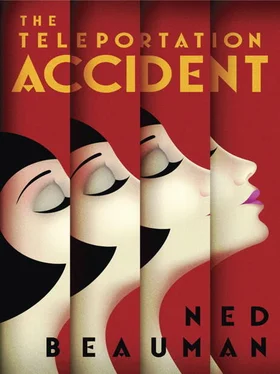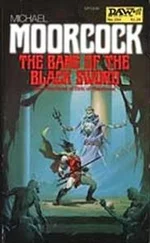The Chairman:Mr Loeser, you may read your statement after you testify.
Mr Loeser:I’d like to read it now.
The Chairman:Only after you are finished with the questions and the answers.
Mr Loeser:I’ve already told you I’m not a communist. I have never had any political affiliation. What else is there to say?
The Chief Investigator:Mr Loeser, you have been called before the Committee as a witness because we are investigating the nature of the association in the years 1934 to 1940 between a certain Soviet agent operating in Los Angeles and the novelist and screenwriter Stentor Mutton, who will testify tomorrow. Is it correct to say that you have some special knowledge of that association?
Mr Loeser:Most of the time I had no idea what was going on.
The Chief Investigator:But you were acquainted with both parties?
Mr Loeser:Yes, I knew Drabsfarben and I knew Mutton. Well, I still know Mutton.
The Chairman:Excuse me, Mr Loeser, but what are you doing?
Mr Loeser:What does it look like I’m doing?
The Chairman:It looks like you’ve taken off your tie and you’re whirling it around your head like a gaucho’s bolas.
Mr Loeser:Yes. I wanted to see if it would show up in the transcript.
The Chairman:What do you mean?
Mr Loeser:The strange thing about a transcript like this is that it contains no stage directions. I could beat you to death with your own gavel and the stenographer wouldn’t even be able to hint that it had happened unless somebody got up and said, ‘Let the record show that Mr Loeser has beaten the Chairman to death with his own gavel.’
The Chairman:Are you making a threat against the life of a congressional official, Mr Loeser?
Mr Loeser:I was only making a theoretical point.
The Chairman:Please put down your tie. May I remind you that you are standing before a Congressional Committee appointed by law?
Mr Loeser:But I don’t think I’m standing before any such thing. I don’t think I’m standing at all. I think I’m asleep in bed in the Shoreham Hotel about three miles away from the Capitol.
The Chairman:How can you possibly justify such an assertion, Mr Loeser?
Mr Loeser:Because I don’t remember getting here. All I remember is making love to my wife a little while after the alarm clock woke us.
The Chief Investigator:In what position?
Mr Loeser:I was on top of her, with my right arm hooked under her left knee in order to hold her thigh up against her stomach.
The Chief Investigator:Why not both arms under both knees?
Mr Loeser:That’s a lot of work. I’m forty years old. May I continue?
The Chief Investigator:Please.
Mr Loeser:I ejaculated, withdrew, rolled off on to my side, kissed her on the neck, and closed my eyes. Then before she went into the bathroom to take out her little rubber womb veil, she shook my shoulder and said, ‘Egon, you’d better not doze off again, it’s already nine and you have to be across town in an hour.’ I grunted in full and sincere agreement. Then I dozed off again. I think I may still be dreaming.
The Chairman:Does this feel like a dream to you?
Mr Loeser:Not really. But that doesn’t prove anything. Schopenhauer would say we all have a case of chronic ontological agnosia. ‘Life and dreams are pages of one and the same book.’ Our senses give us a few flickers and hums and tickles, and we mistake those representations for real objects and real experiences, even though every single bleary morning reminds us that we can’t tell dreams apart from life until we wake up. None of us are really any saner than Colonel Gorge. I loathe Brecht—
The Chairman:Mr Brecht is scheduled to appear before this Committee in a few weeks so please keep your language respectful.
Mr Loeser: — but I can’t help admiring the way he makes it impossible for the audience to forget that they’re only watching actors on a stage. In the theatre we develop a special temporary type of ontological agnosia and Brecht injects us with the cure against our will. But who can give us the same injection at double the dose when we’re out of the theatre and walking down Broadway? Nobody reads the philosophers any more.
The Chief Investigator:So what you’re contending, Mr Loeser, is that history is a nightmare from which you are trying to awake?
Mr Loeser:No. History is an alarm clock I want to throw through the window. Can I make my statement now?
The Chief Investigator:Not yet. Why did you come to the United States?
Mr Loeser:For the good of my health. If I’d dropped dead before I left Berlin the doctors would have cut open my spleen and they would have held it up to be photographed and they would have said, ‘Do you see these patches here and here, the colour and texture of rotten dog food? The patient was only just twenty-six, and yet we wouldn’t normally expect to find such a toxic accumulation of bitterness and jealousy in a man younger than sixty years old.’ That, and Adele’s eyes.
The Chief Investigator:What will you say if you are asked that same question again later this morning?
Mr Loeser:I have no idea. By the way, are we speaking in German or English? I can’t tell, which really does suggest this might be a dream. You two already seem to be on the point of admitting it.
The Chairman:No more of that sort of talk, please.
The Chief Investigator:What is your occupation?
Mr Loeser:I have none. I was once a set designer.
The Chief Investigator:Why did you give that up?
Mr Loeser:After I read the Lavicini book, there didn’t seem to be any point any more. He’d already covered it all. The man was perhaps the second ever professional set designer, after Torelli, and yet he anticipated almost every advance in the history of set design. Today, we only remember his conjuring machines, but he wasn’t just a technician. He was an avant-gardist.
The Chief Investigator:Have you really adopted as your ‘role model’ a man who abandoned the city of his birth, and of all his early success, because of a break-up? Not a death, not even a divorce, just a break-up? Is that rational?
Mr Loeser:Thoroughly rational, yes. I am full of admiration for anyone with such strength of character. Sometimes when there’s a dead skunk in your roof you just have to write off the whole house.
The Chief Investigator:If you’re no longer a set designer, how do you support yourself and your wife?
Mr Loeser:For most of the war we were almost penniless. Mildred’s father cut off her inheritance when we eloped. But then a judge declared, with retroactive effect, that he was mentally unfit to make a will.
The Chief Investigator:Why was that?
Mr Loeser:Gorge’s ontological agnosia, which I mentioned before, has developed to its inevitable final stage. Now, he just has to hear a word spoken aloud and he will see before him whatever that word represents. It’s as if his disease got so strange that it circled all the way round to boring again — you can hardly tell him apart from any other delirious old man. Even Woodkin can’t talk to him, except in pure abstractions, like bad transcendental poetry. Mildred goes back to Pasadena sometimes to see him.
Читать дальше












